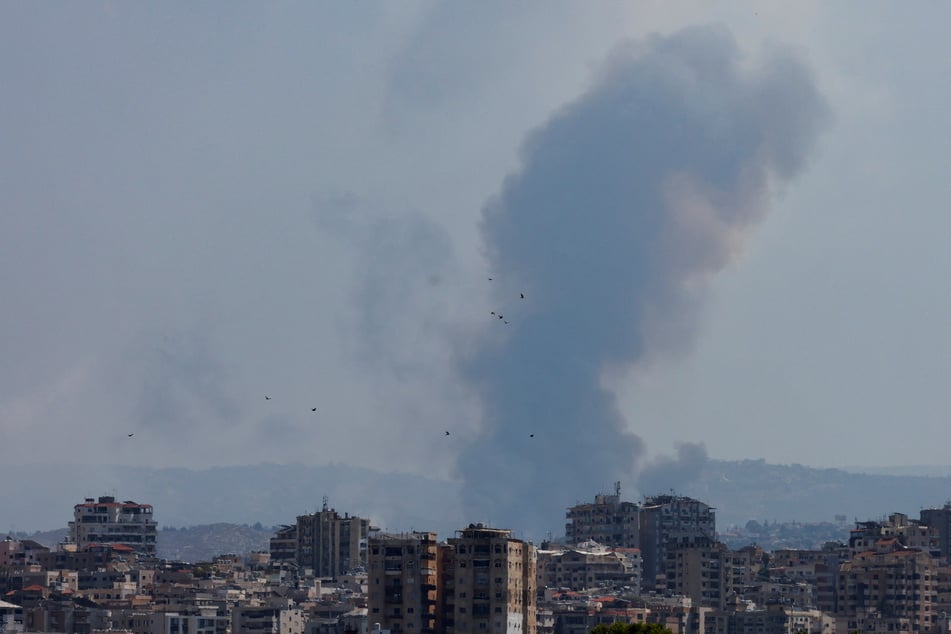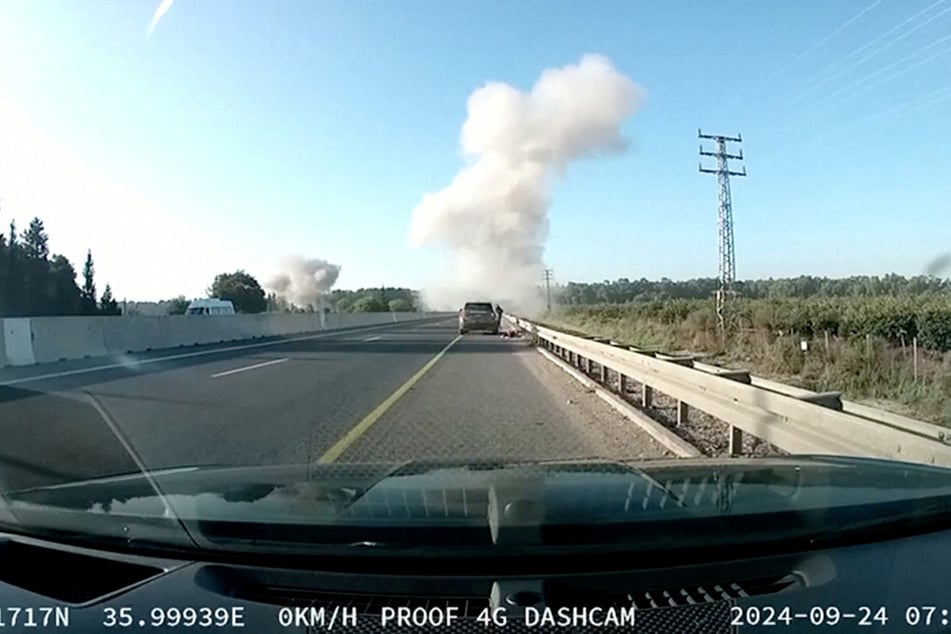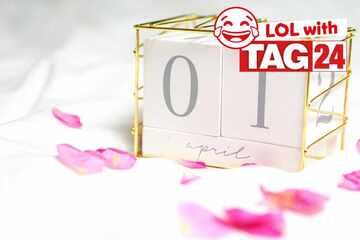Israel continues bombing Lebanon after killing over 500 people, including dozens of children
Beirut, Lebanon - Israel announced dozens of new air strikes on Hezbollah strongholds in Lebanon Tuesday, a day after 558 people, including 50 children, were killed in the deadliest bombardment since a devastating war in 2006.

Israel's overnight strikes on southern Lebanon came after it claimed to hit about 1,600 of what it called Hezbollah targets around the country.
Hezbollah said Tuesday it had launched volleys of missiles at Israeli military bases, hours after 180 of its projectiles and an unmanned aerial vehicle crossed into Israeli airspace, sending people in the city of Haifa running for shelter.
The Israeli military said more than 50 projectiles were fired into northern Israel in less than 10 minutes on Tuesday morning, most of which were intercepted.
It said it had carried out more strikes during the morning targeting Hezbollah infrastructure.
In Lebanon, Monday's raids killed 558 people, including 50 children and 94 women, according to Health Minister Firass Abiad.
"The vast majority, if not all of those killed in yesterday's attacks were unarmed people in their homes," he said.
The UN said a huge number of Lebanese residents had fled their homes since Monday, in the face of the intensifying Israeli bombardment.
"Tens of thousands of people were forced from their homes yesterday and overnight, and the numbers continue to grow," UN refugee agency spokesman Matthew Saltmarsh said, adding that "the toll on civilians is unacceptable."
Lebanese residents describe "day of terror"

"It was a day of terror," 41-year-old Thuraya Harb told AFP at a makeshift center for displaced families in Beirut after fleeing her home in south Lebanon.
"I didn't want to leave my home, but the children were scared," the mother of four said, adding that the family fled "with nothing but the clothes on our backs."
Longtime foes Hezbollah and Israel have been locked in near-daily cross-border exchanges of fire for nearly a year, since the Palestinian militant group Hamas led an unprecedented attack on Israel on October 7.
Hezbollah, which has been fighting Israel for decades, and other Iran-backed militants in the region have been drawn into the fray in solidarity with Palestinians, and have repeatedly offered to end hostilities if a Gaza ceasefire is agreed. Israel has steadfastly refused to end the war.
Monday's bombardment of Lebanon was by far the largest and deadliest, not just in the past year, but since the Israel-Hezbollah war in the summer of 2006.
Iran condemned the attacks, with its president, Masoud Pezeshkian, saying Tuesday that its ally "cannot stand alone" against Israel.
"Hezbollah cannot stand alone against a country that is being defended and supported and supplied by Western countries, by European countries and the United States," Pezeshkian said in an interview with CNN.
"We must not allow Lebanon to become another Gaza at the hands of Israel," he added.
Other leaders have expressed alarm over Israel's escalation, which began last week with the remote detonation of thousands of communication devices in Lebanon, causing widespread terror among the population.
UN chief António Guterres' spokesperson saying he was "gravely alarmed" and the EU's top diplomat Josep Borrell warning "we are almost in a full-fledged war".
The US, which arms Israel and acts as its defender, said it was sending additional US military personnel to the Middle East after thousands were deployed earlier alongside warships, fighter jets, and air defense systems.
Cover photo: REUTERS

